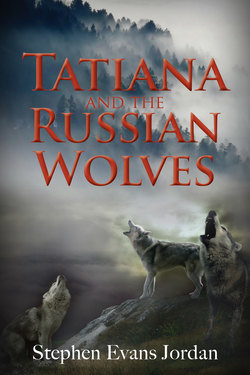Читать книгу Tatiana and the Russian Wolves - Stephen Evans Jordan - Страница 7
На сайте Литреса книга снята с продажи.
CHAPTER 2 JUNE 1985 NEW YORK CITY
ОглавлениеI arrived in New York City early in the evening, checked into a hotel near the airport, and phoned Fiona Sinclair in San Francisco.
Fiona had been my mother’s closest friend. I was seventeen when my father died, and my mother never recovered. Her grief was diagnosed as acute depression, but the doctors had it wrong. She had become insane.
I can’t imagine what would have happened to us without Fiona; she moved us into her home and arranged for my mother’s care. Fiona became my legal guardian and sent me to college. My parents’ money didn’t cover my mother’s care, let alone my education. When I asked for an accounting, she refused to discuss the matter.
Fiona picked up on the second ring. “Fiona, I’m in New York. I need your help.”
“What went wrong in Russia?”
“A retired high-ranking policeman who knew of my mother and Adrian Romanovsky questioned me. He said that mother pandered to the Germans during the occupation.”
“Tatiana sold some art to the Germans. I’m sure you know that.”
“I do, but the policeman used the word pandered.”
“Pandered, how?”
“He didn’t say; I wasn’t about to ask.”
“Why don’t you tell me what you know,” Fiona said, “and I’ll fill in any gaps. On second thought, why don’t we discuss this tomorrow when you get home?”
“I’d like to get this cleared up now…if you don’t mind?”
Fiona said, “Before the Revolution, Tatiana’s family had an incredible art collection. Your maternal grandmother, Olga, did the purchasing and oversaw the collection. Olga passed her talent to your mother; both of them had the eye. Why don’t you continue, Alexander?”
“As you probably know, after the Civil War, the Communists coerced Olga to catalogue and appraise confiscated art—much from her family’s collection—and were selling to Westerners for hard currency. In the early 1920s, Olga, my mother, and her brother were allowed to leave Russia and went to Paris, where Olga found a job as a nanny and art advisor to a Jewish banker. The banker was a kind man and let my grandmother set up a home in his townhouse’s basement.”
“Keep going,” Fiona said.
“Before the war, an important Parisian art gallery employed my mother as a catalogue clerk until the owners discovered that she had the eye. The eye knew which pictures held the money and, as the war approached, which held the lives. Just before the war, the Parisian art market became increasingly predatory. The gallery became a conduit for quick sales as Jews flooded the market with paintings. After the German occupation, highway robbery became the norm. Mother was disgusted and quit.”
“Then what?”
“Mother and the banker negotiated his family out of France by selling his collection to representatives of that fat Nazi. What was his name?
“Herman Goering,” Fiona said.
“Yes, him. The banker and his family went to Brazil or Portugal. Mother was quite proud of that.”
“I could have found work for her at one of the galleries here in San Francisco, but she refused to have anything to do with buying and selling paintings.” Fiona paused. “Then what did Tatiana do?”
“She took some kind of job with a large French construction company,” I said.
“Right, the company needed Russian translators.”
“Russian translators? Why?”
“Oops!” Fiona gasped. “Spilled my tea.” She put the phone down for a long moment. “The construction company—I forget its name—employed Russian volunteers.”
“Volunteers? You mean Russian prisoners of war?”
Fiona didn’t answer.
“What did this construction company do?”
“I believe they did work for the German military authorities,” she said.
“And the Russian POWs?”
“Tatiana said that they were farm boys who volunteered, so to speak, to get out of the German prison camps, where they were being starved.”
“So—”
“Look, Alexander, Tatiana didn’t join the Resistance or anything like that. She was alone in Paris. Her mother died right after the war started, your grandfather and uncle returned to Russia, and your father had been evacuated to England. Technically she may have cooperated with the Germans; so did a lot of French. Bear in mind that Tatiana’s feelings about France were ambivalent: the French were contemptuous of the Russian émigrés, and she was never allowed French citizenship. In short, she survived.”
“I see…”
“You’re upset?”
“Mother was so evasive about those days.”
“Did the policeman say anything else about Tatiana?”
“No, he was more interested in my grandfather. I’ll tell you about that later.”
“If I may have been less than forthright, well, I didn’t want to harm your memories of Tatiana,” Fiona said. “You understand, don’t you?”
“I do, I guess.”
“I’m afraid Tatiana will never let go of you.”
“I don’t deserve to be let go of.”
“My dear boy, so harsh on yourself.” Fiona brightened. “I’ll pick you up at the airport tomorrow afternoon; we’ll have a lovely supper.”
“I’m looking forward to that.”
“And so am I, Alexander.”
